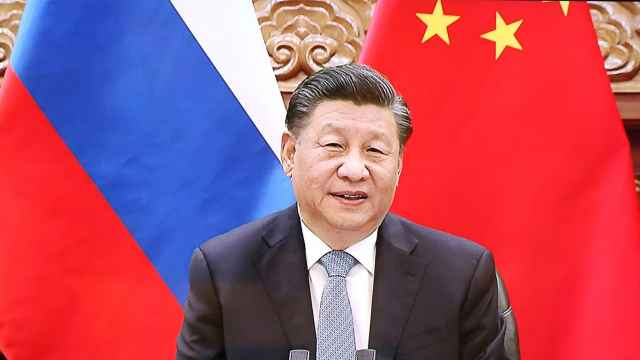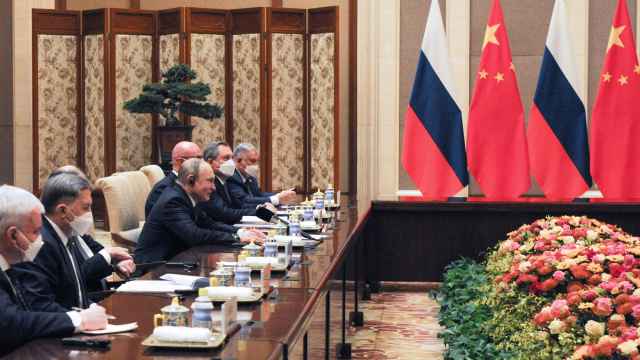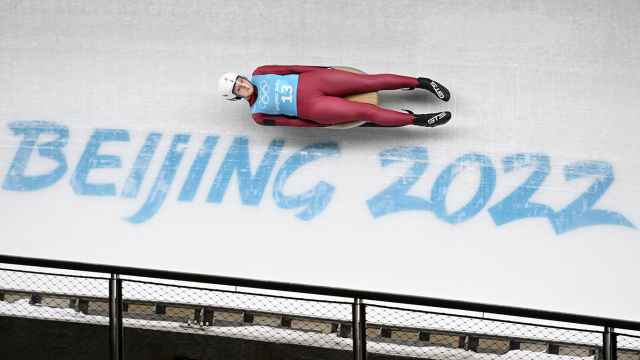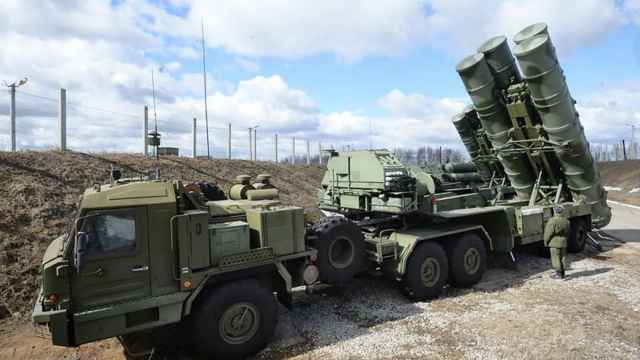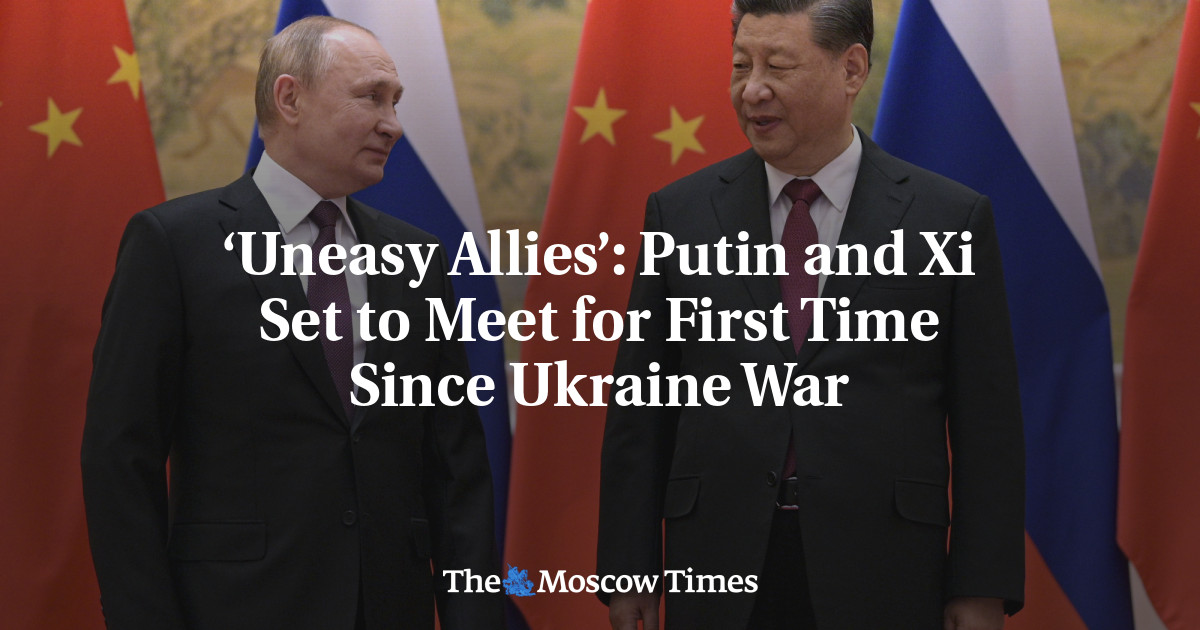
Now is the time to support independent reporting from Russia!
‘Uneasy Allies’: Putin and Xi Set to Meet for First Time Since Ukraine War
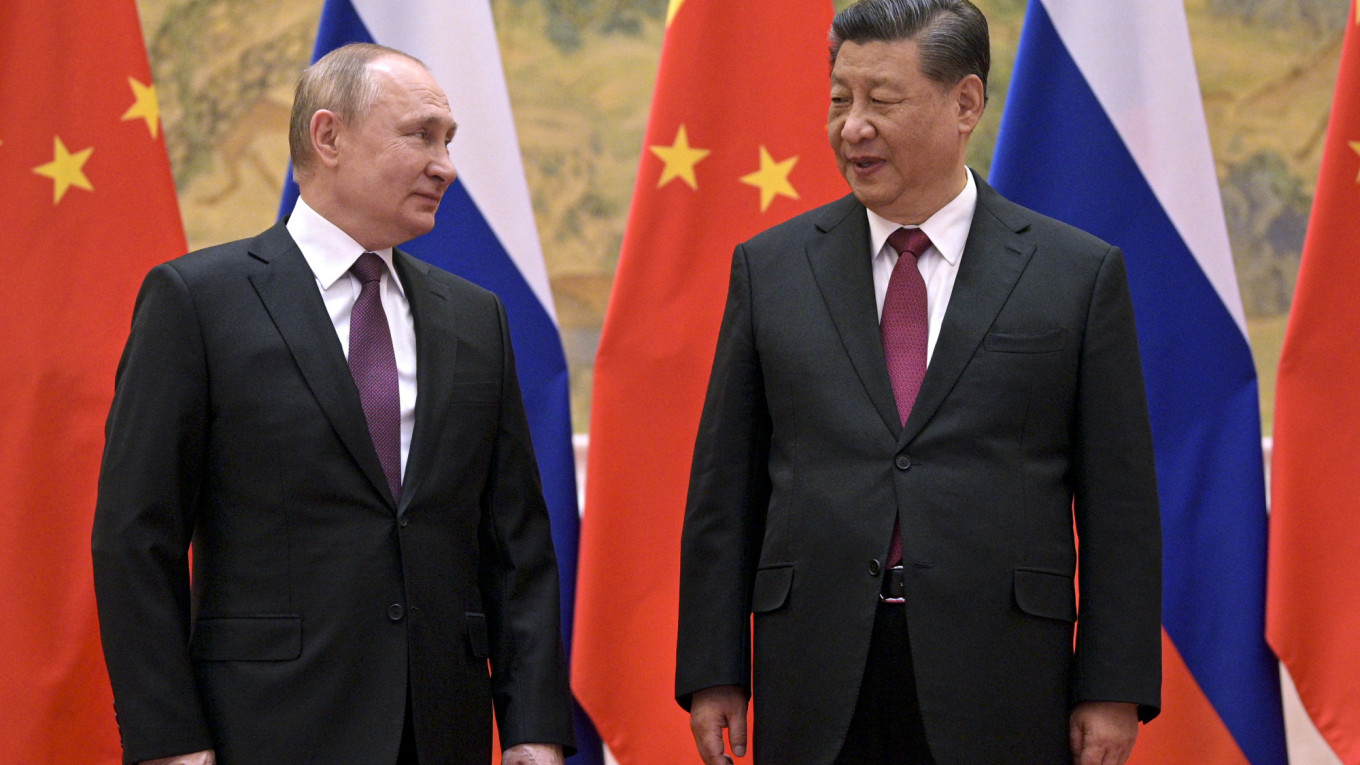
Russian President Vladimir Putin will meet his Chinese counterpart Xi Jinping on Thursday on the sidelines of a summit in Uzbekistan that has been touted as an alternative to a Western-dominated world order.
The two men will take part in a gathering of the Shanghai Cooperation Organization (SCO) in the Silk Road city of Samarkand as Russia seeks to overcome international isolation over its invasion of Ukraine.
Putin’s talks with Xi this year will be of “of particular importance” for Moscow, Kremlin foreign policy adviser Yuri Ushakov said earlier this week.
The latest negotiations with China are expected to focus on gas exports and broader trade relations as Moscow seeks more active Chinese help amid setbacks in its six-month invasion of Ukraine and economic problems triggered by Western economic sanctions.
“It’s important for Putin to show Russia is not isolated from the rest of the world,” Alexander Gabuev, a leading Russian expert on relations with China, told The Moscow Times.
At the two-day summit, Putin will also meet with the leaders of Iran, Pakistan, India and Turkey, but much of the focus will be on bilateral negotiations with China.
While Beijing has refused to condemn the Kremlin’s war against Ukraine, China has largely complied with sanctions against Russia over Ukraine, with some Chinese companies cutting ties with Moscow to avoid falling foul of the Western restrictions.
Xi and Putin last encountered each other in February on the sidelines of the Beijing Winter Olympics, where the two announced a “no limits” friendship.
China last week took part in military exercises involving 50,000 soldiers in Russia’s Far East along with troops from Russia, India and other Russia-allied nations.
“China certainly pursues only its own interests in relations with Russia,” said Gabuev, a senior fellow at the Carnegie Endowment for International Peace.
“In many ways, these interests match with Russian ones,” he said. “But, for Beijing, it’s much more pragmatic — already buying Russia’s energy with a discount, it’s likely that China will increasingly impose its own conditions in future deals on Russia’s natural resources.”
Putin admitted earlier this month that “our Chinese friends are tough bargainers.”
China has significantly increased its imports of Russian raw materials since the beginning of the war in Ukraine, albeit often at a significant discount.
Chinese purchases of Russian crude, oil products, gas and coal reached $35 billion in the first five months of the war, up from $20 billion in the same period last year, according to Chinese customs data cited by Bloomberg.
Russia’s state-owned gas giant Gazprom announced last month that China had agreed to pay for Russian gas imports in rubles and yuan instead of Western currency.
The meeting between Putin and Xi is a way to “secure” economic deals, according to Gabuev, which often require a green light from top officials before they can go ahead.
One likely outcome of the meeting is an agreement to boost Chinese technology exports to Russia, according to Temur Umarov, an expert on China and Central Asia at the Carnegie Endowment for International Peace.
But such an agreement will probably be limited to sectors where there is no risk of Chinese companies falling afoul of Western sanctions imposed on Russia for the invasion of Ukraine.
In a bid to avoid being caught up in these Western sanctions, Chinese tech giant Huawei has reportedly begun moving staff from Russia to Central Asia and China’s UnionPay payment system has limited operations with sanctioned Russian banks.
“China does want to go into isolation with Russia — we see that some Chinese companies are quietly leaving Russia’s market and Chinese banks are not eager to open accounts for Russian clients,” Umarov told The Moscow Times.
Set up in 2001 as a Eurasian rival to Western political and security alliances, the SCO is made up of China, Russia, India, Pakistan and the ex-Soviet Central Asian nations of Kazakhstan, Uzbekistan, Kyrgyzstan and Tajikistan.
“The SCO offers a real alternative to Western-centric organizations,” Kremlin adviser Ushakov told reporters in Moscow this week.
While economic questions are more complex, China is likely to be more forthcoming when it comes to declarations of political support for Moscow.
“One of the few issues on which Beijing is ready to support Russia fully is its rhetorical confrontation with the West,” Umarov said.
Moscow recently backed China over Taiwan, which Beijing sees as its breakaway province, calling U.S. House Speaker Nancy Pelosi’s visit to the island a “clear provocation.”
“For China, the meeting is also an opportunity to show that, as an independent power with its own vision of the world order, it can cooperate with Russia no matter what Washington says,” Gabuev told The Moscow Times.
At the same time, Beijing is unlikely to risk any major disruption in its relations with major Western countries by helping Russia too much.
“China sees Russia as a weakening country, especially given Ukraine’s successful counteroffensive,” Umarov said.
“Beijing, like no other, benefits from the current situation.”
Read more



